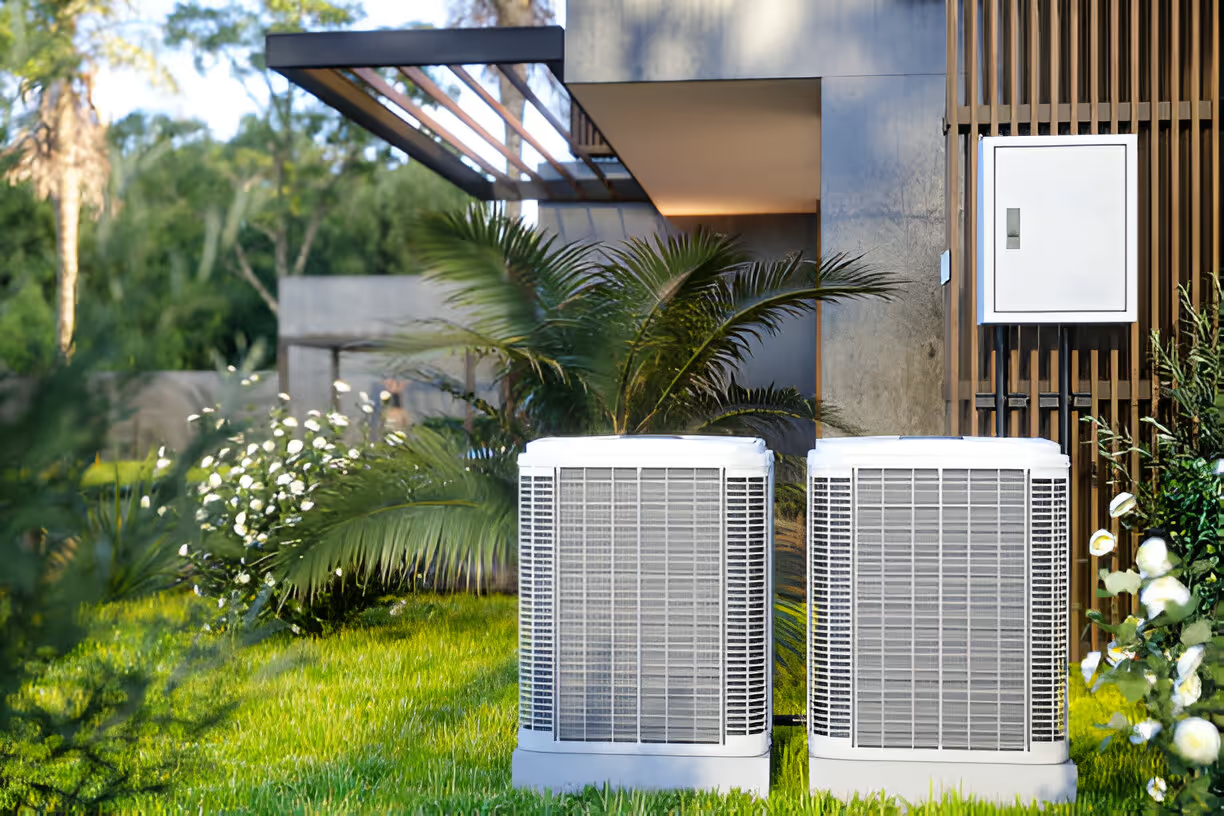HVAC Installation in Babylon, NY
Replacing or installing an HVAC system in Babylon, NY is a long-term investment in comfort, indoor air quality, and energy savings. With humid summers, cold winters, and coastal salt exposure, homes and businesses here need properly sized, code-compliant systems installed to withstand local conditions.

Why proper installation matters in Babylon, NY
- Summer humidity and thermal load from waterfront exposure increase cooling demand and mold risk if ventilation is inadequate.
- Winters bring lower temperatures and potential for high heating loads; efficient heating reduces fuel costs and comfort complaints.
- Salt air can accelerate outdoor unit corrosion; proper equipment selection, placement, and protective coatings extend service life.
- Incorrect sizing or poor ductwork leads to short cycling, uneven temperatures, higher bills, and premature component failure.
Common types of installations for Babylon homes and businesses
- Central split systems (air conditioner plus gas or electric furnace) for whole-house heating and cooling.
- Heat pumps and cold-climate heat pumps for year-round efficiency and potential rebate eligibility.
- Ductless mini-split systems for additions, garages, or homes without ductwork.
- Packaged rooftop units and commercial split systems for small businesses and multi-zone properties.
- Hybrid systems combining heat pump with gas furnace for optimal performance in variable temps.
Site evaluation and accurate sizing: Manual J and Manual S
A reliable installation starts with a full site evaluation and proper load calculations:
- Manual J (heat load) measures the exact heating and cooling load for each room based on square footage, insulation levels, window orientation, occupancy, and local weather data for Babylon. This prevents oversizing or undersizing.
- Manual S determines the correct equipment capacity and ensures the selected unit can meet the calculated loads without excessive cycling.
- Manual D (if ducts are present) assesses proper duct sizing and layout to maintain correct airflow and static pressure.
- Commercial properties use equivalent commercial load calculations and distribution analysis to size rooftop or packaged systems appropriately.
Key checks during evaluation:
- Insulation levels, attic and wall conditions, and air leakage points.
- Existing duct condition, leakage percentage, and insulation.
- Sun exposure, window types, and orientation for solar gain.
- Proximity to the bay or ocean to determine corrosion-resistant requirements and elevated outdoor unit mounts.
Recommended equipment and brands
For long-term reliability and parts availability in Suffolk County, consider proven manufacturers with local support networks:
- Daikin and Bosch for advanced heat pump and inverter technology.
- Rheem and Goodman for dependable central split systems and broad serviceability.
- Amana for robust furnaces and packaged systems.
When selecting equipment, prioritize:
- Proper SEER/EER and HSPF ratings for cooling and heating efficiency.
- Corrosion-resistant outdoor coatings and elevated bases for coastal installations.
- Smart thermostat compatibility and zoning options to optimize comfort and energy use.
- Warranties and local parts/service availability.
Typical installation steps
- Pre-install planning: Confirm permits, delivery access, and staging areas. Verify Manual J/S/D results and finalize equipment.
- Demolition and removal: Safely remove the old system and dispose of refrigerant per regulations.
- Duct and line preparation: Repair or upgrade ducts, install proper insulation, and run refrigerant lines or piping.
- Mechanical installation: Set outdoor condenser/heat pump on an elevated, level pad; install indoor air handler or furnace; connect gas and electrical per code.
- Controls and thermostat: Install smart or programmable thermostats and zone controls if required.
- Electrical and gas tie-ins: Coordinate required inspections and secure certified connections.
- Insulation and sealing: Seal duct seams, insulate penetrations, and ensure airtight transitions to reduce energy loss.
- Commissioning and testing: See next section for detailed checks.
Code compliance, permits, and inspections
Babylon installations must comply with New York State building codes, Suffolk County regulations, and Town of Babylon permitting procedures. Typical requirements include:
- Mechanical and electrical permits for new equipment and system modifications.
- Licensed plumber or gas fitter inspections for natural gas or propane connections.
- Proper refrigerant handling and EPA-compliant refrigerant recovery documentation.
- Local building inspections for rooftop or structural modifications on commercial sites.
For commercial projects and new construction, additional documentation such as load reports, equipment schedules, and commissioning records are often required by building departments.
Commissioning and post-installation testing
Proper commissioning ensures the system performs as designed and protects your investment:
- Confirm refrigerant charge meets manufacturer specifications and verify operating pressures and superheat/subcooling.
- Measure airflow and static pressure at the air handler to validate duct performance.
- Verify temperature differentials across coils and confirm correct staging and cycling behavior.
- Test combustion safety and flue draft on gas furnaces.
- Calibrate thermostats, program schedules, and verify remote connectivity if using smart controls.
- Run noise and vibration checks, and inspect for leaks and drainage issues.
- Provide a final walkthrough explaining operation, maintenance intervals, and any warranty registration.
Financing and incentives
Several financing options are commonly available for homeowners and businesses in Babylon:
- Interest-bearing and interest-free financing plans through equipment manufacturers or local lenders.
- New York State and utility-sponsored rebates and incentives, particularly for high-efficiency heat pumps and electrification projects.
- Tax credits and energy-efficiency rebates that may apply to upgraded systems and eligible equipment.
Gather documentation of model numbers, efficiency ratings, and installer certifications to support rebate or tax credit applications.
Benefits, maintenance, and final considerations
A properly installed, sized, and commissioned HVAC system in Babylon delivers:
- More consistent comfort year-round and improved indoor air quality.
- Lower energy bills and longer equipment life through reduced wear and efficient operation.
- Reduced risk of premature failures and fewer emergency repairs.
- Better eligibility for rebates and incentives with certified installations.
Ongoing care: Schedule annual preventive maintenance, check refrigerant levels and airflow, replace filters regularly, and protect outdoor equipment from salt exposure and debris.
A carefully planned HVAC installation—grounded in Manual J/S sizing, local code compliance, corrosion-aware equipment selection, and full commissioning—will give Babylon homes and businesses dependable comfort and efficient performance tailored to the region.
Customer Testimonials
Hear directly from homeowners who trust Bobby O’s HVAC Inc. for fast response times, honest service, and lasting comfort.











